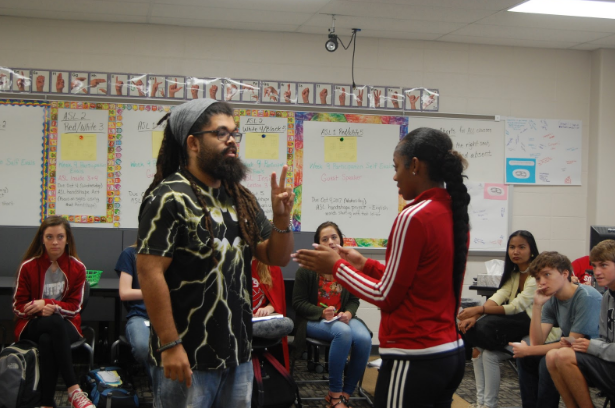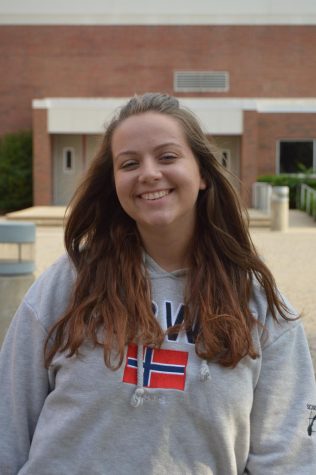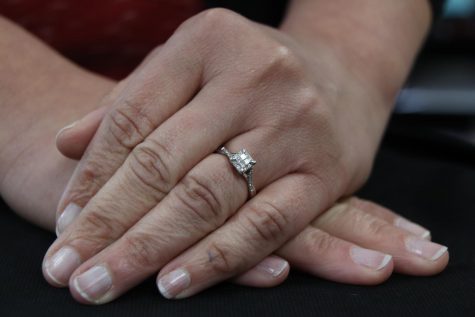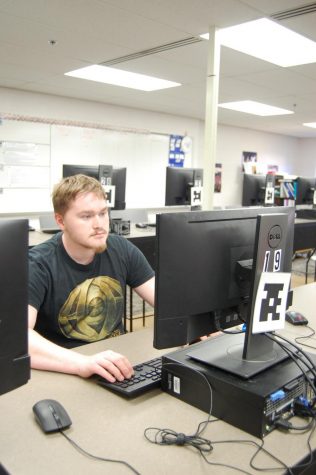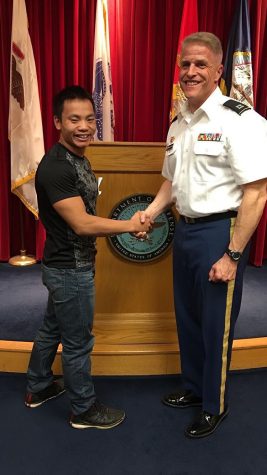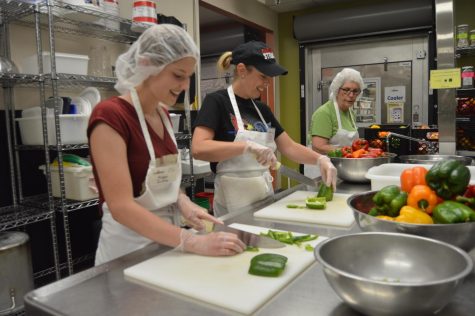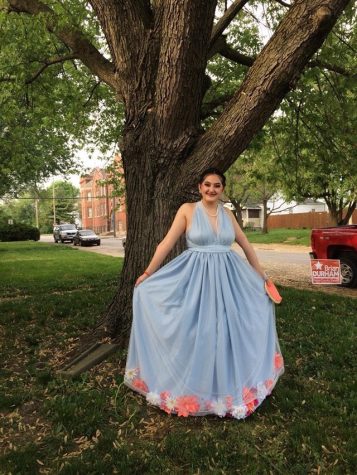Deaf wrestler brings hope to ASL students
Andrew Meade proves Deaf and Hard of Hearing people can overcome obstacles through sign language
Meade interacts with ASL students.
November 2, 2017
A part of the American Sign Language class is exposure to the deaf culture, community and language. On Sept. 30, a Deaf wrestler, Andrew Meade, also known as Fiji Wildman, came to SHS to share his story, and teach students about Alexander Graham Bell, the inventor of the telephone, and how he developed different methods to help the deaf community, but failed to understand their culture. Meade also wanted to share a message with the students.
“Many students only think Bell invented the telephone, but there is more to it than that,” Meade said.
Meade’s goal for the visit was to teach the students about deaf culture and how Bell’s philosophy affected the deaf community. His motto for the day was, “Everyone has options.”
According to Meade, Bell married a deaf woman. He invented the telephone to help his wife communicate with people who can hear. To deaf people, Bell does not have a good reputation. He is known for being cruel to deaf people, claiming that ASL is inferior to English. Not only did he invent the telephone for his wife; he also tried to rid deaf culture from her and other deaf people.
“Deaf people understand and are aware of what Bell has done,” Meade said. “Hearing people are oblivious to it.”
Meade continued his presentation by explaining that no one is limited to one option. Meade currently works part-time at Pizza Hut, he travels and wrestles on the side. His schedule at Pizza Hut helps him support his family and allows time for him to wrestle, he says.
To some, being a deaf wrestler might have some setbacks. Some of the setbacks deaf people might face are communication barriers, discrimination and being deprived of language. Meade found a way to break those barriers.
“The number one barrier I have while wrestling is communication. I can speak, read lips and everything else that I need to do, but the people I work with feel paralyzed and seem to avoid communicating with me,” Meade said. “That’s where I feel that it is not fair. I deserve the same access as any other person.”
The wrestling world often depends on speaking. They have a method of communication called “walk and talk.” Meade found an old way of communicating which helps him to know when it is his turn to accept the beating and when it is his turn to do the beating.
“It is a special touch. It is very easy to pick up. For example, they might squeeze my wrist twice. That is the signal I would take to know it is my turn to fight back. It is called code touch.” Meade said.
Haley Cox, an ASL student, thought Meade’s message was very personal and made her take a look at what it would be like to be in someone else’s shoes.
“I will never forget that there is a deaf culture and if I happen to have a deaf child it won’t be the end of the world and it doesn’t have to be fixed.” Cox said.
Meade wanted to show the students that being deaf is not a bad thing. Cox mentioned that Meade showed them that there are setbacks in being deaf, for example, until the age of fourteen Meade did not have a culture. Meade was stuck in between hearing and deaf culture. According to Cox, he had to rely on his mother for many years.
“I think he came to show us that being deaf isn’t the end of the world. Sure, it is an adjustment but, just like what Bell did for his wife, others will find ways to be in your life.” Cox said.


